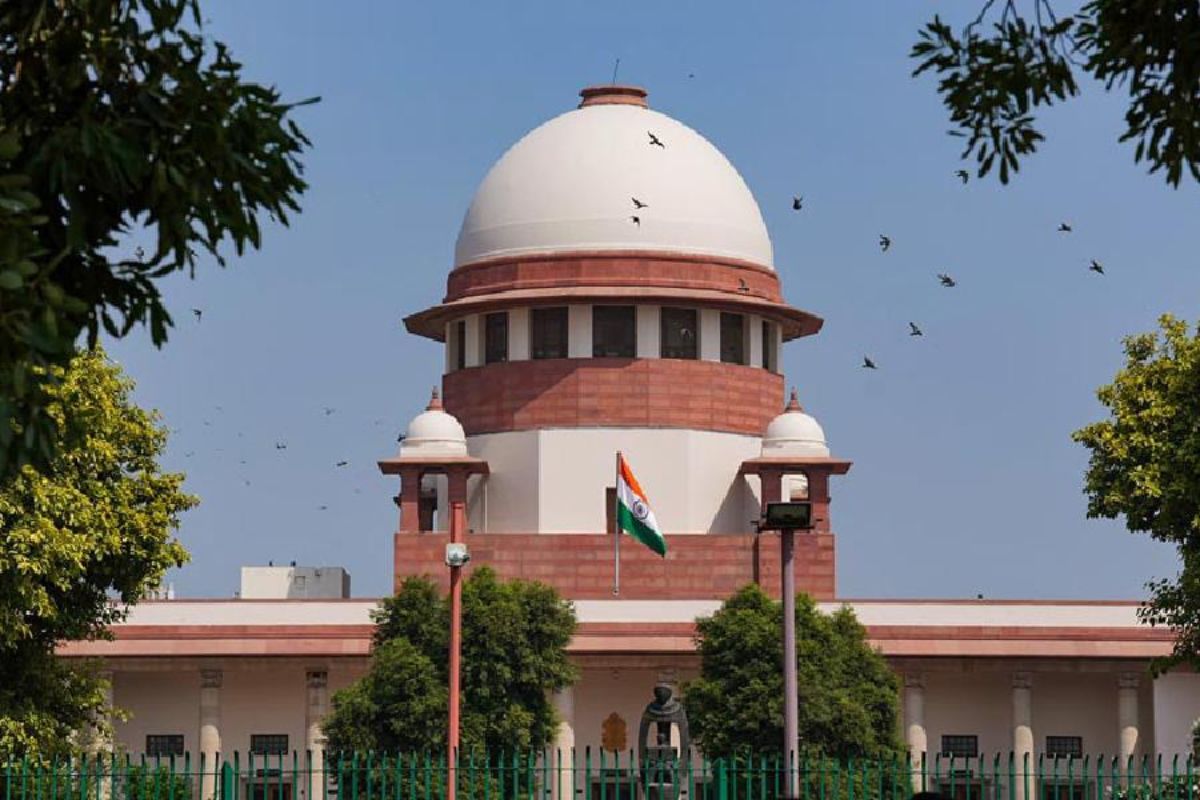No public money will be spent on glorifying govt & CM: Sachdeva
Sachdeva claimed that the BJP government in Delhi did not spend a single penny from the public treasury for the oath-taking ceremony held on Thursday.
Declining to stay the operation of the ordinance promulgated on May 19 to overcome its May 11 judgment, the apex court posted for hearing on July 17, the Kejriwal government’s plea against the sacking of the 437 people who were engaged by the Delhi government.

SC quashes proceedings against Karnataka Dy CM Shivakumar in PMLA case
The Supreme Court on Monday issued notice to the Centre on Delhi government’s plea challenging the constitutional validity of the Government of National Capital Territory of Delhi (Amendment) Ordinance, 2023 taking away its (Delhi government’s) control over the services and vesting in the Lieutenant Governor the overriding power in the transfer and postings of bureaucrats serving under Delhi government.
Declining to stay the operation of the ordinance promulgated on May 19 to overcome top court’s May 11 judgment, a bench of Chief Justice D.Y. Chandrachud and Justice Pamidighantam Sri Narasimha posted for hearing on July 17, the Kejriwal government’s plea against the sacking of the 437 people who were engaged by the Delhi government.
Advertisement
Senior advocate Abhishek Manu Singhvi appearing for Delhi government told the bench that the engagement of 437 people was terminated by the Lieutenant Governor taking recourse to the provisions of the ordinance. Countering Singhvi, Additional Solicitor General Sanjay Jain appearing for Lieutenant Governor said that these people who were projected to be some experts in different domains were in fact Aam Aadmi Party activists.
Advertisement
In the course of the hearing, senior advocate Singhvi vehemently argued for the stay of the operation of the ordinance and to buttress his point cited instances when the top court had stayed the operation of laws passed by the parliament. He told the court that what was in challenge before it was just an ordinance which was brought in to overcome its (top court) judgment. He said that the ordinance was in the teeth of the triple chain of command /accountability enunciated by the constitution bench relating to accountability of babudom to the Minister, Minister to the legislature and legislature/lawmakers to the people.
Referring to May 11, 2023, a five-judge constitution bench judgment authored by Chief Justice Chandrachud, Singhvi pointed to the triple chain of command enunciated by it, which said that the Civil service officers are accountable to Ministers; Ministers are accountable to Parliament/Legislature; and Parliament/Legislature is accountable to the electorate.
Singhvi referred to Section 45K of the Ordinance saying that it gives overriding powers to the Lieutenant Governor and that the Ordinance was contrary to the May 11, Supreme Court judgment.
However, the court was unmoved and issued notice to the Centre seeking its reply to Delhi government’s challenge to the ordinance. The court also permitted the Delhi government to amend its petition to implead the Lieutenant Governor as a respondent.
The ordinance under challenge was promulgated on May 19 to overcome Supreme Court’s five-judge constitution bench May 11 judgement that had ruled that the Delhi government would have control over all services and officers serving under it barring those dealing with public order, police and land, and Lt. Governor does not have an all-encompassing supervision over the administration of the national capita and has to act on the aid and advice of the Council of Ministers.
Denuding the Delhi government of its authority, vested in it by the May 11 top court judgment, to post and transfer the senior ranking bureaucrats serving under it, the May 19 ordinance invested the control over babudom in the Lieutenant Governor.
The Section 45A of the Ordinance under challenge that provides for the setting up of the National Capital Civil Service Authority for the transfer, posting and other matters relating to senior babus, is recommendatory in nature and would make recommendations to Lieutenant Governor.
The Chief Minister of Delhi will be the Chairperson of the Authority with Chief Secretary and the Principal Home Secretary of Delhi government as its member and the decisions will be taken by majority votes.
Seeking the quashing of the ordinance under challenge, the Delhi government has said that the Ordinance destroys the scheme of federal, Westminster-style democratic governance that is constitutionally guaranteed for national capital territory of Delhi under Article 239AA.
The Delhi government has also urged the top court to issue directions to quash and declare Section 3A of the Government of National Capital Territory of Delhi Act, 1991 as introduced by the Government of National Capital Territory of Delhi (Amendment) Ordinance 2023, as unconstitutional.
It has further sought direction to quash Section 41 of the Government of National Capital Territory of Delhi Act, 1991 as amended by the Government of National Capital Territory of Delhi (Amendment) Ordinance 2023 and to quash Sections 45B, 45C, 45D, 45E, 45F, 45G, 45H, 45I, 45J, and 45K of the GNCT Act introduced by the Ordinance under challenge as unconstitutional.
Delhi government has challenged Section 45 of the Ordinance spelling out the provisions relating to the maintenance of the democratic and administrative balance in the governance of the national capital territory of Delhi.
Advertisement